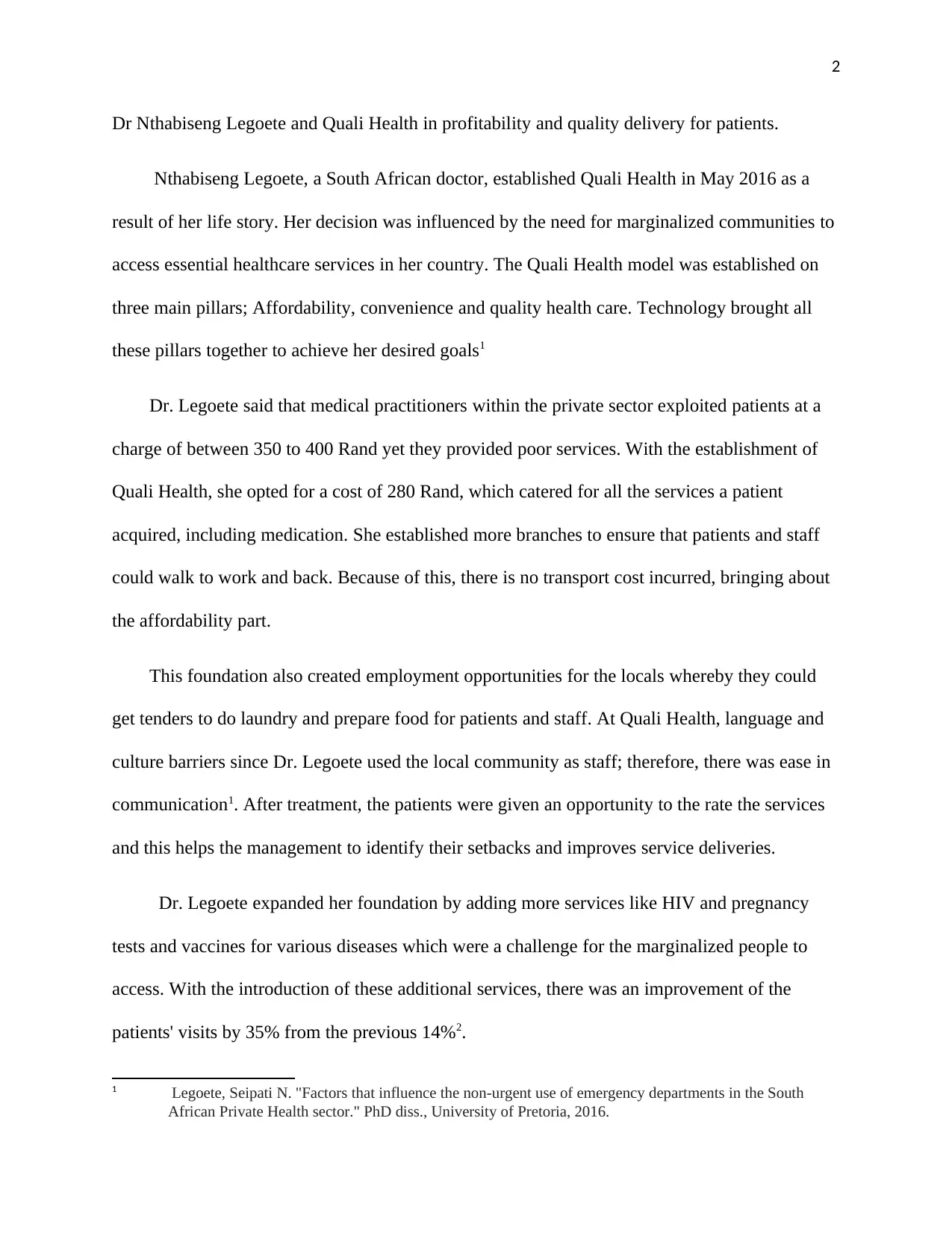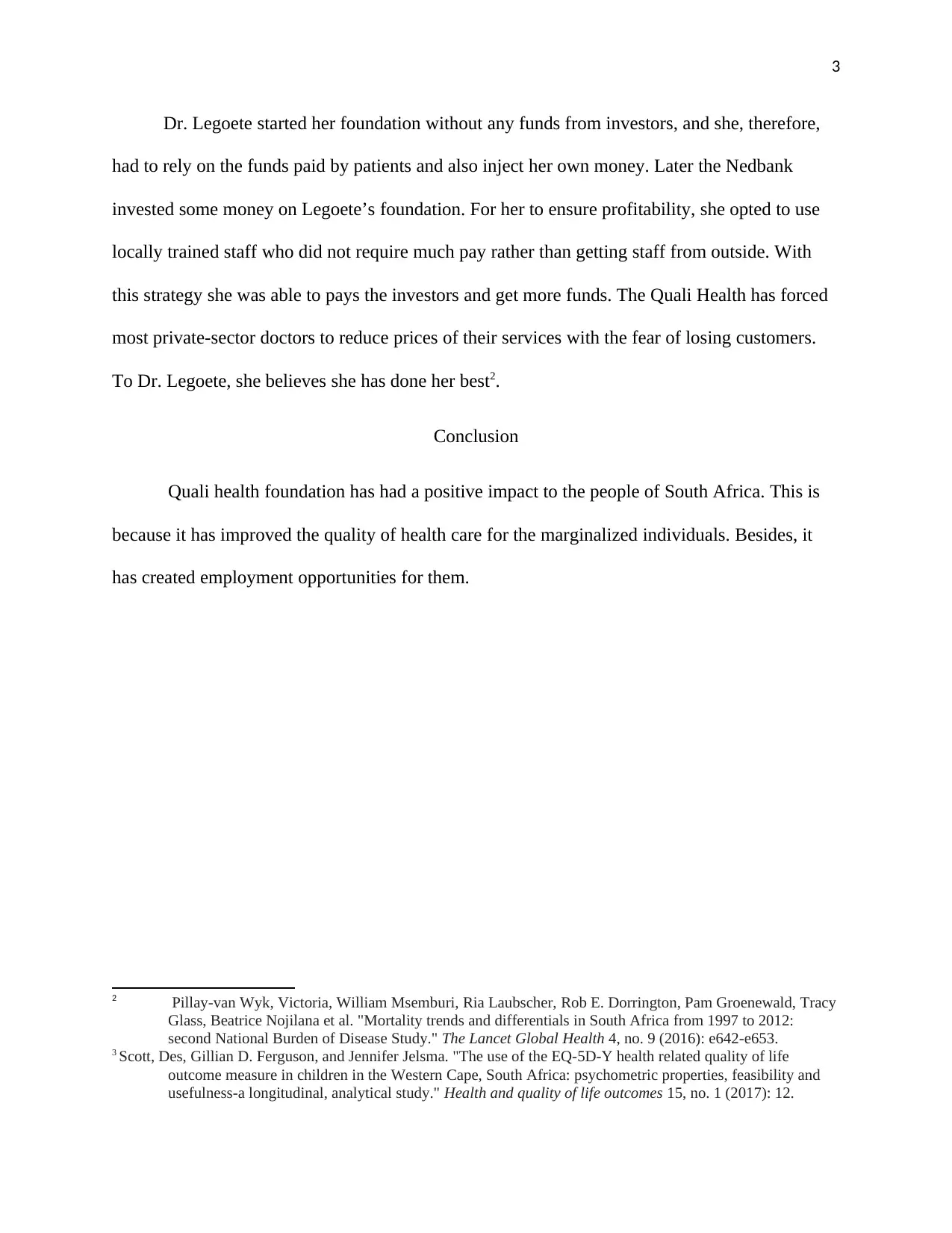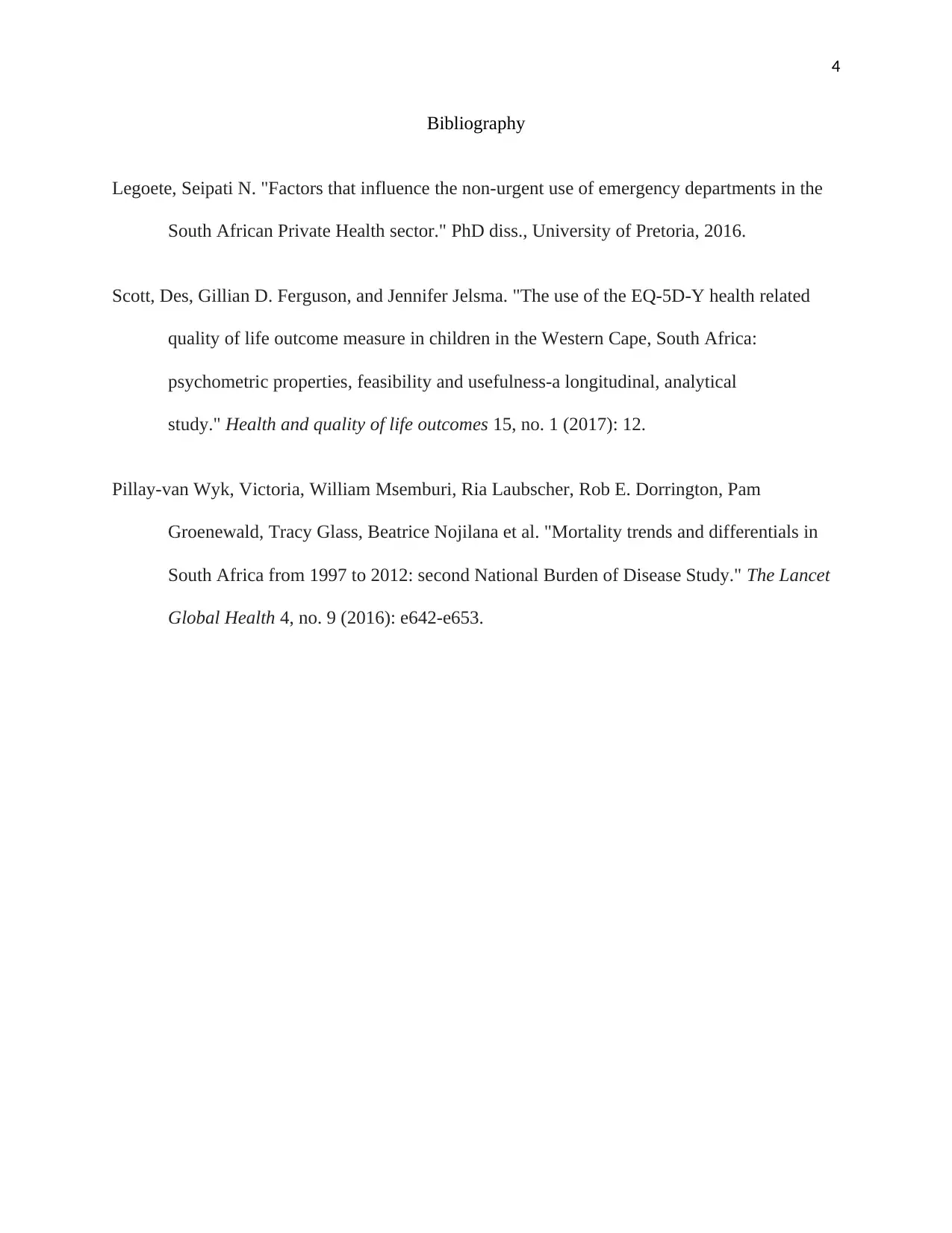Quali Health: Balancing Profitability and Quality in Healthcare
VerifiedAdded on 2022/10/19
|4
|653
|288
Case Study
AI Summary
This case study examines Dr. Nthabiseng Legoete's Quali Health, a healthcare initiative in South Africa established to address the lack of accessible and affordable healthcare for marginalized communities. The case highlights the three pillars of Quali Health: affordability, convenience, and quality, enabled by technology. Dr. Legoete challenged the high costs and poor services of private sector doctors, offering more affordable services, including medication, and establishing convenient locations. The model created local employment opportunities and overcame language barriers by employing local staff. Quali Health implemented patient feedback mechanisms to improve services and expanded services to include HIV and pregnancy tests and vaccinations. Despite starting without external funding, Dr. Legoete ensured profitability by utilizing locally trained staff, attracting investment from Nedbank and driving down prices in the private sector. The case concludes with a positive impact on the quality of healthcare and employment opportunities for the people of South Africa.
1 out of 4






![[object Object]](/_next/static/media/star-bottom.7253800d.svg)